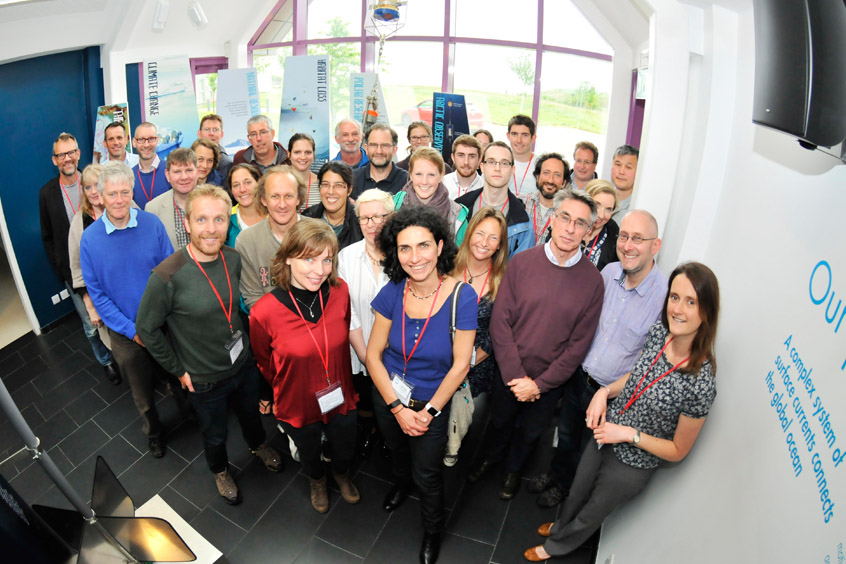SAMS news room
Arctic explorers launch research projects at SAMS

Projects that seek to answer some of the most pressing questions in Arctic science are now officially underway, following meetings at SAMS between some of the UK’s leading Arctic researchers.
SAMS leads two projects - Arctic PRIZE and DIAPOD – included in the Natural Environment Research Council’s Changing Arctic Ocean research programme. Both projects will examine the dramatic environmental changes in the Arctic and how they will affect the climate, ocean properties, marine life and food stocks across the northern hemisphere. They will benefit from SAMS’ expertise in marine biology, physical oceanography and marine robotics.
Dr Finlo Cottier and Prof David Pond, who lead Arctic PRIZE and DIAPOD respectively, both held kick-off meetings at SAMS this week as the projects got underway. The meetings also acted as a pre-cursor to the UK Arctic Science Conference, which will be hosted by SAMS in Oban from September 19 – 21.
Dr Cottier said: “There is urgency among Arctic researchers to collect and examine as much data as we can, given the rapid pace of change in the region. I am pleased to see UK scientists playing a lead role in this research; our projects will pool the best of UK Arctic research, while working alongside international partners.
“There are crucial questions to answer around changes in sea ice cover, but also how that pattern of change will affect the ecosystem, including the marine food web. We will be making observations from ships and using robotics during the relatively unexplored polar winter, as well as the more productive spring and summer months, to give us a rare picture of the entire Arctic year.”
Meanwhile, Dr Kirsty Crockett of SAMS has been tasked with co-ordinating the four projects within the £10m CAO programme, which includes projects led by the universities of Leeds and Liverpool.
The Arctic region has seen the most dramatic changes in climate over the past few decades, with ice melting at a quicker rate each year because of rapid warming. While the daily average global temperature rose by 0.55 degrees Celsius from 1979 – 2000, the temperature in the Arctic rose by 6.42 degrees Celsius for the same period.
The average Arctic sea ice cover for November 2016 set a record low, leading to suggestions that sea ice cover could be at a tipping point, from which that the region may not recover.
